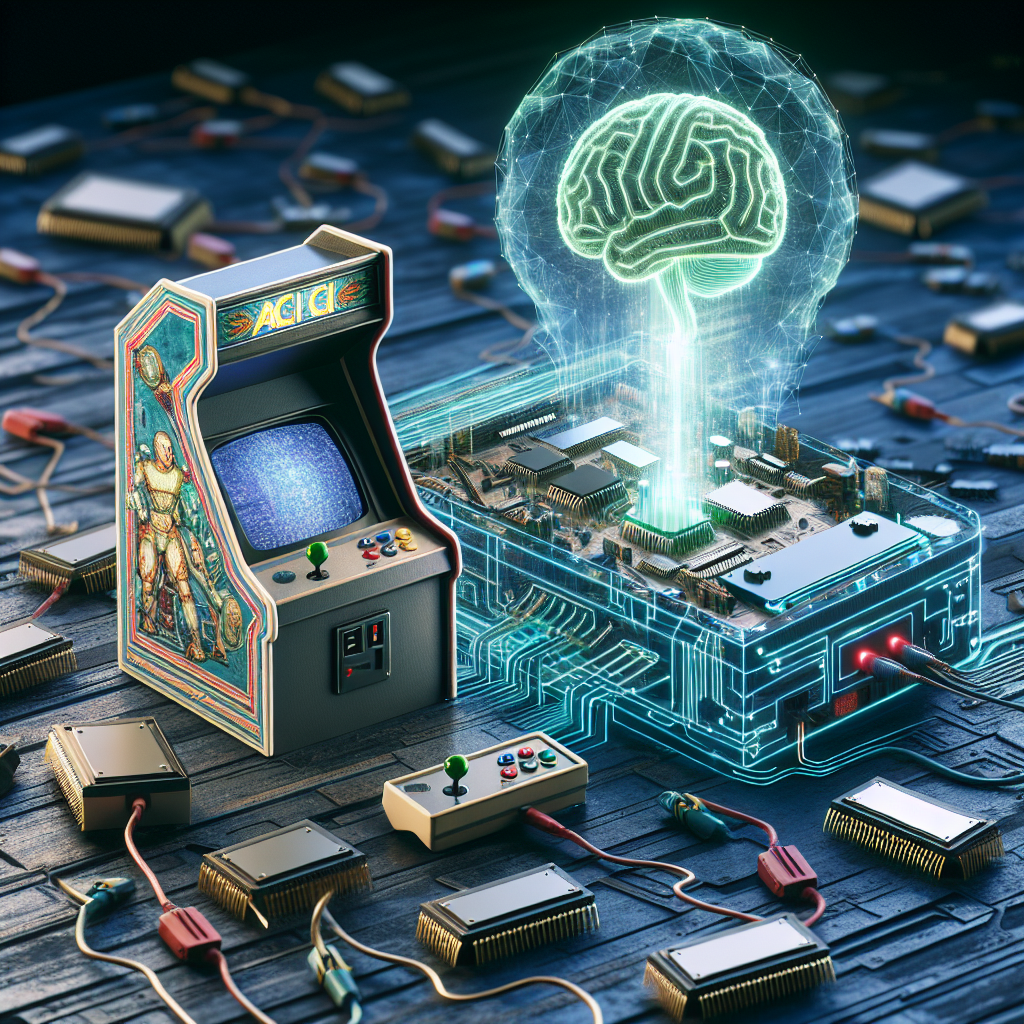The gaming industry has undergone a significant transformation in recent years, thanks to the advancements in artificial intelligence (AI) technology. AI tools are being used in various aspects of game development and gameplay, leading to more immersive and engaging experiences for players. From character behavior to game design, AI is playing a crucial role in shaping the future of gaming.
One of the key ways in which AI tools are transforming the gaming industry is through the development of more realistic and intelligent non-player characters (NPCs). In the past, NPCs in games were often limited in their actions and responses, making them feel artificial and predictable. With the help of AI, developers can now create NPCs that can adapt to the player’s actions and make decisions based on complex algorithms and machine learning models.
For example, in a game like The Witcher 3: Wild Hunt, AI-powered NPCs can exhibit realistic behaviors such as forming alliances, betraying the player, or reacting to the player’s choices in a more nuanced way. This level of realism and intelligence in NPCs adds depth to the game world and enhances the overall gaming experience.
AI tools are also being used to improve game design and level creation. Traditionally, game developers had to manually design and test each level of a game, which could be a time-consuming and labor-intensive process. With AI, developers can now use algorithms to generate levels automatically, based on parameters such as difficulty levels, player preferences, and game mechanics.
This not only speeds up the game development process but also results in more varied and challenging levels for players to explore. Games like Spelunky and Minecraft have leveraged AI-generated levels to create endless possibilities for players, ensuring that no two playthroughs are ever the same.
In addition to improving NPCs and level design, AI tools are also being used to enhance player experiences through personalized gameplay. By analyzing player data and behavior, AI algorithms can tailor the game experience to each individual player, offering personalized challenges, rewards, and storylines.
For example, in a game like Assassin’s Creed Odyssey, AI-powered systems can adjust the difficulty of combat encounters based on the player’s skill level and preferences, ensuring that every player has a challenging but enjoyable experience. This level of personalization not only keeps players engaged but also encourages them to continue playing and exploring the game world.
AI tools are also revolutionizing the way games are tested and debugged. Traditionally, game testing involved manual playtesting by human testers, which could be time-consuming and prone to human error. With AI, developers can now automate the testing process using algorithms that can identify bugs, glitches, and other issues in the game code.
This not only speeds up the testing process but also ensures a higher level of accuracy and reliability in detecting and fixing problems. Games like Minecraft and Overwatch have used AI-powered testing tools to identify and fix bugs before they impact the player experience, leading to smoother and more polished gameplay.
Overall, AI tools are transforming the gaming industry by enabling developers to create more immersive and engaging experiences for players. From realistic NPCs to personalized gameplay, AI is revolutionizing the way games are designed, tested, and played, leading to a new era of innovation and creativity in gaming.
Frequently Asked Questions (FAQs):
Q: How is AI being used in game development?
A: AI is being used in game development to create more realistic NPCs, automate level design, personalize gameplay, and improve testing and debugging processes.
Q: What are some examples of games that have leveraged AI technology?
A: Games like The Witcher 3: Wild Hunt, Spelunky, Assassin’s Creed Odyssey, Minecraft, and Overwatch have all used AI technology to enhance various aspects of gameplay.
Q: How does AI improve player experiences in games?
A: AI improves player experiences in games by creating more realistic and intelligent NPCs, generating varied and challenging levels, personalizing gameplay, and automating testing and debugging processes.
Q: What are some challenges and limitations of using AI in game development?
A: Some challenges of using AI in game development include the need for specialized skills and expertise, potential biases in AI algorithms, and concerns about data privacy and security. Additionally, AI tools may not always be able to replicate the creativity and intuition of human developers.
Q: What does the future hold for AI in the gaming industry?
A: The future of AI in the gaming industry is bright, with ongoing advancements in machine learning, natural language processing, and computer vision technologies. AI will continue to play a crucial role in shaping the future of gaming, leading to more immersive, engaging, and personalized experiences for players.

